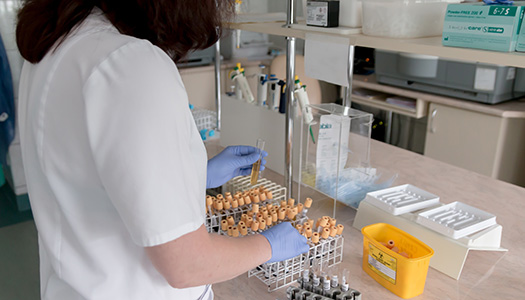Urinary Tract Infections – (UTIs)
UTIs are infections in the urinary system, including the
- Bladder — the organ that collects and stores urine
- Ureters — the tubes that lead from the kidneys to the bladder
- Urethra — the tube that carries urine from the bladder out of the body
Even though UTIs are very common, they should be taken seriously. Severe cases of urinary tract infections, left untreated, may cause kidney infection.
UTIs affect women more often than men. It’s true — and the reason has to do with biology.
A woman’s urethra is much shorter than a man’s, making it easier for bacteria to get into the bladder.
In addition, a woman’s urethra is closer to her anus than a man’s is. This makes it easier for bacteria to spread into her urethra and cause an infection.
Symptoms:
- Burning pain during urination
- An urge to urinate when your bladder is nearly empty
- Feeling like you need to urinate all the time, especially at night
- Difficulty controlling when you urinate
- Lower abdominal pain or back pain
- Blood and/or pus in your urine
- Fever
Causes:
- A bacterium by the name of Escherichia coli is responsible for causing urinary tract infection.
- Besides E coli, Staphylococcus saprophyticus also leads to urinary infection in about five to ten percentage of cases.
- Having made its way into the urinary tract, it keeps multiplying in number causing infection.
- With urethra being close to bladder in women, females susceptibility to urinary tract infection is relatively more.
- Young women leading an active sexual life, sex contributes to UTIs.
- Use of catheter may also cause urinary tract infection.
- Use of diaphragm as a means of birth control also makes one more susceptible to urinary infection.
- Increase in the size of the prostate gland may also contribute to the infection.
- Diabetes also makes one more prone to urinary tract infection.
- Contracting UTI especially that related to lower urinary tract may well be a hereditary strain.
- Menopause: This also increases the risk for UTI due to weakening (atrophy) of the vaginal walls.
Preventions:
If you’ve ever had a urinary tract infection (UTI), you know that once is more than enough. The good news is you may be able to prevent UTIs. Try these simple tips to prevent getting a urinary tract infection:
- Drink when you are thirsty.
- Urinate as soon as you feel the urge. Don’t hold it.
- Keep your vulva clean and dry.
- Drink unsweetened cranberry juice or take cranberry supplements. Cranberries contain an acid that helps prevent bacteria from growing.
- Urinate immediately before and after sex play.
- Avoid positions during sex that seem to trigger UTIs.
- Use latex or female condoms during vaginal intercourse.
Homeopathy medicines….
There are many good medicines in homoeopathy to treat acute UTI or even recurrent UTI problems
Some of the remedies commonly used are:
- Cantharis : Constant urge to urinate, but passes in drops. Burning and cutting pain in urethra during urination, violent tenesmus and over sensitiveness of the parts
- Berberis : Stitching & cutting pain from left kidney following course of ureter in to bladder and urethra urine is blood red, greenish or thick jelly like.
- Apis : UTI caused after some incidence of anger, wexation, fright or suppressed skin eruption. Right side of the urinary system is affected. Thirstlessness, heat and burning of the urinary parts. Urine is scanty, frequent, painful and sudden with burning pain especially the last drop burns.
- Pulsatilla : Mild and sensitive females who weep easily and want sympathy thirstlessness and feels better in open air. Burning & shifting pains predominant.
Others remedies that can be indicated are:
Sepia, Nux vomica, Lycopodium, Arsenic 7 Merc sol according to the constitution of the individual.







